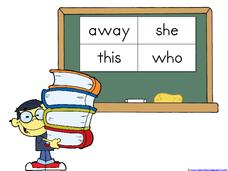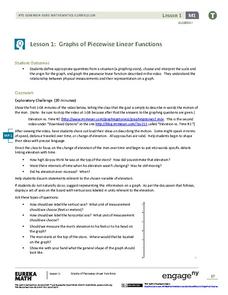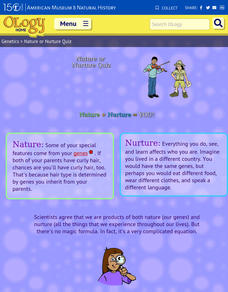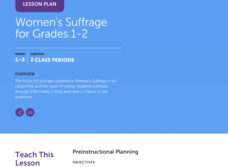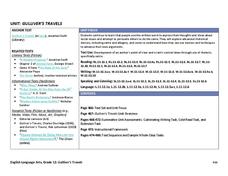1 plus 1 plus 1 equals 1
I Can Read! Sight Words Set #8
Provide the building blocks to a strong education with a packet about sight words. Kids work on the words little, we, do, and all with tracing and matching activities, as well as games and flash cards.
1 plus 1 plus 1 equals 1
I Can Read! Sight Words Set #4
Perfect for a unit on Mother's or Father's Day, a set of activities based on the sight words love, mom, dad, and at is sure to engage your young readers. From bingo boards to matching maps, kids can spot their sight words in many...
1 plus 1 plus 1 equals 1
I Can Read! Sight Words Set #12
Master four sight words with an array of teaching tools. As kids work on recognizing away, she, this, and who, they trace letters and match flash cards to improve their reading skills.
1 plus 1 plus 1 equals 1
I Can Read! Sight Words Set #14
Study the sight words but, have, will, and into with a series of reading activities. With tracing lessons, matching games, and flash cards, the packet is a great first step to a successful reading education.
1 plus 1 plus 1 equals 1
I Can Read! Sight Words Set #13
Take the first steps to reading fluency with a set of language arts activities. Kids work on the sight words pretty, ran, so, and out with tracing worksheets and matching games.
Discovery Education
By the Foot: The History of Measurement
When is a foot not a foot? When you use the length of your own foot to measure distances, of course. To underscore the importance of standardized units of measurement, middle schoolers engage in a series of activities that ask them to...
Center for Learning in Action
Water – Changing States (Part 2)
Here is part two of a two-part instructional activity in which scholars investigate the changing states of water—liquid, solid, and gas—and how energy from heat changes its molecules. With grand conversation, two demonstrations, and one...
Chicago Botanic Garden
Faces of Climate Change
Sometimes, the best solution to a problem can be found by walking in someone else's shoes. Here, scholars use character cards to take on the roles of people around the world. They determine how their character's life affects our...
American Museum of Natural History
Ask a Scientist About Our Environment
Scientists respond to 26 question posed by learners. These experts answer in easy to understand language, include photos to illustrate the issue, offer suggestions for how young people can make a difference, and supply links to resources...
Anti-Defamation League
Martin Luther King, Jr. and Civil Rights
How far have we come and how far do we still need to go to achieve equality and full civil rights in the United States? Include a packet of materials collected in your observance of Martin Luther King, Jr. Day.
Center for Learning in Action
Water—Changing States (Part 1)
Here is part one of a two-part lesson plan in which scholars investigate the changing states of water—liquid, solid, and gas. With grand conversation and up to three demonstrations, learners make predictions about what they think will...
NOAA
Please Pass the Salt
Salinity is the focus of two experimenters that work to answer the question, How does salt change the physical properties of water? Super scientists compare the freezing rate of salt and fresh water, combine the two waters to observe how...
American Museum of Natural History
Horse Gaits Flipbooks Walk, Trot, and Gallop!
Scholars follow seven steps to create horse-themed flipbooks. Three printable options allow them to choose from walking, trotting, or galloping scene.
Curated OER
Express Yourself Lesson Seed 18: Investigate
Prepare your class for argumentative writing with a close inspection of the controversy surrounding Theodore Taylor's novel, The Cay. All necessary articles and materials are linked at the beginning of the resource. Kids use the provided...
EngageNY
Graphs of Piecewise Linear Functions
Everybody loves video day! Grab your class's attention with this well-designed and engaging resource about graphing. The video introduces a scenario that will be graphed with a piecewise function, then makes a connection to domain...
Jamestown-Yorktown Foundation
What Was Everyday Life like in Colonial Virginia?
What was everyday life like in Colonial Virginia? To find the answer cooperative groups work collaboratively to read an informational handout and complete a graphic organizer. The speaker of the group then shares their new-found...
American Museum of Natural History
Solar System Scavenger Hunt
Scholars go on a hunt to locate objects that best fit the measurements to create an eye-catching scale model of the solar system.
American Museum of Natural History
Make Your Own Weather Station
Scholars build a weather station equipped with a wind vane, rain gauge, and barometer. Following an informative page about the weather, learners follow steps to build their pieces then turn into meteorologists to chart the weather they...
American Museum of Natural History
Nature or Nurture Quiz
Eighteen questions ask pupils whether certain behavior or trait is based on nature or nurture. Scholars take a quiz, reflect on their answers, then challenge a friend or family member to complete it.
Sean Banville
New Year's Day
Focus on a passage about the new year with your English language learners. You can start with reading the passage aloud to your class, and then launch into the related activities. Pupils match phrases, complete cloze-style activities,...
Scholastic
Women's Suffrage for Grades 1–2
Scholars take part in a grand conversation after they examine facts and stories about the Women's Suffrage Movement. Eight discussion questions bring light to influential women, the importance of voting, citizenship, and voting rights.
Media Education Lab
Sponsored Content as Propaganda
What is sponsored content? Who produces sponsored content? Why? Is it fair or unfair? What are the privacy implications for consumers? To answer these questions, class members view a model screencast before crafting their own that...
Louisiana Department of Education
Gulliver’s Travels
Gulliver's Travels tells the story of a man who goes on voyages and encounters strange people. A unit plan introduces readers to the classic text, as well as excerpts from other examples of sarcasm and satire, such as "A Modest Proposal"...
Curriculum Corner
Hibernation
What is hibernation? Which animals hibernate and which don't? A 40-page packet on hibernation includes graphic organizers, reading passages and pictures about animals that hibernate, task cards, templates for a hibernation booklet,...




